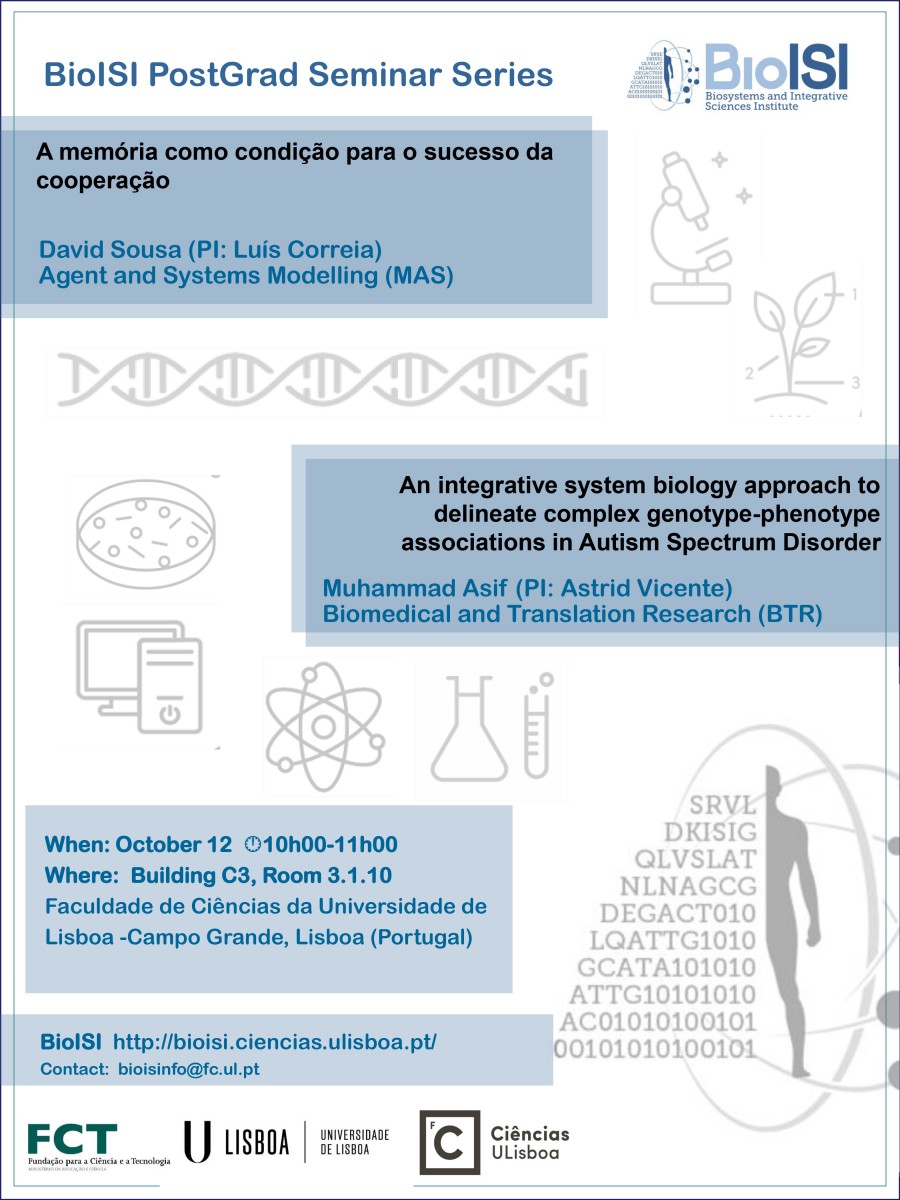On a path to improve the way we think about, understand and intervene in urban green spaces
Por Cristina E. Ramalho (Post-doctoral research fellow at the University of Western Australia).
Por Cristina E. Ramalho (Post-doctoral research fellow at the University of Western Australia).
Por Rafael Oliveira (UNICAMP).
Candidaturas a Bolsas de Doutoramento prolongadas até 31 de outubro de 2017.
Mais informações disponíveis na página do Programa Doutoral.

Há cinco anos o biólogo marinho Pedro M. Lourenço encontrou microfibras em dejetos de aves. Foi nessa ocasião que surgiu a ideia de avaliar a abundância de microplásticos nos estuários, iniciando assim um estudo sobre a poluição por plásticos.
The Lichens course is a 4 days lectures and lab classes + one day field excursion. It aims to provide the participants with the basics of lichen biology and ecology, biomonitoring and data analysis methods to allow the use of lichens for the interpretation of the environmental conditions and the development of a responsible scientific-based environmental management. See more at http://lichens.fc.ul.pt/.
The goal of this short course is to introduce the students to the main climate change research concepts and prepare them to use available information on scenarios, impacts and adaptation.
Specific goals include:
Estes cursos breves, dirigidos aos alunos de licenciatura (e mestrado) em Biologia da FCUL, têm como objetivo complementar o seu plano curricular e a oferta já existente para este público-alvo, e decorrem sobretudo aos fins de semana e feriados para evitar sobreposição com compromissos académicos de alunos e docentes.
Os custos de inscrição foram mantidos tão baixos quanto possível para que este fator não represente uma barreira para os estudantes.
This course offers an overview of the different ways to measure biodiversity, and provides tips for the stratification of primary biodiversity data and the construction of variables that describe its various facets. It also includes an in-depth review of the different types of data used to measure biodiversity and their problems and limitations.
Date: June 25th, 2018 to June 29th, 2018
Deadline for Applications: June 1st, 2018
Por Paula Gonçalves (PhD Student - CE Group).